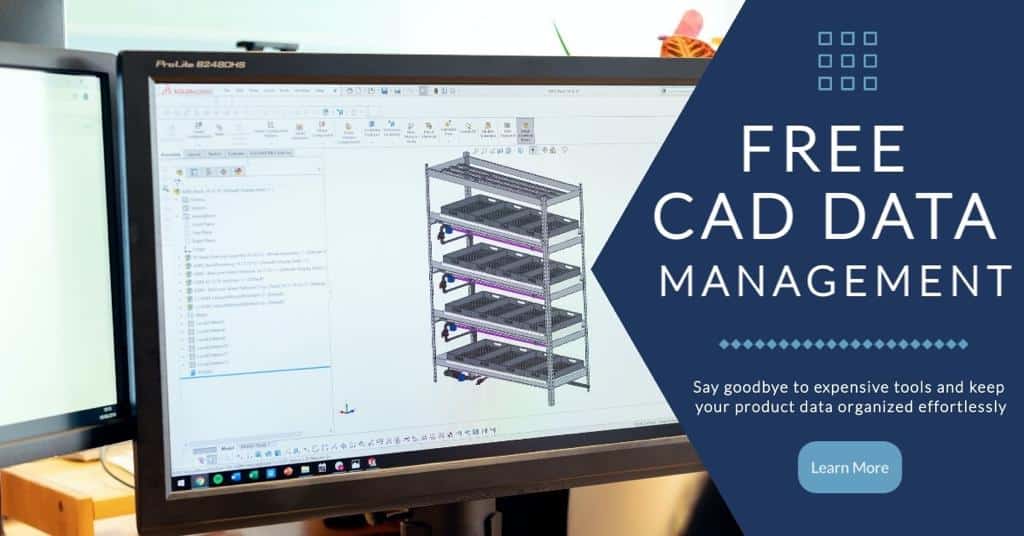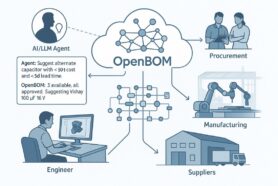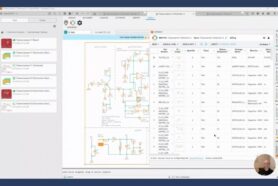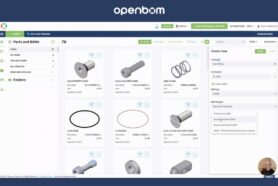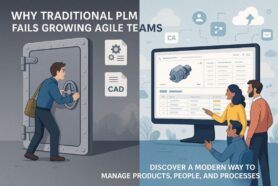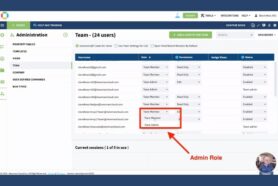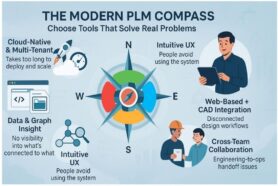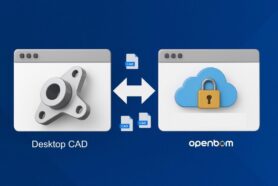
In today’s interconnected world, collaboration and data sharing have become essential aspects of business operations. Companies often find themselves working with multiple partners, suppliers, and contractors, all of whom require access to specific data and information. In the picture below you can see how a company might have connections with suppliers, and contractors (design and manufacturing). For many products, maintenance, and support can be provided by other companies that are also looking at how to share up-to-date information.
When the last time you shared information between contractors for co-design or sent the data to contract manufacturers, you most probably were thinking about how to “sync” data between different repositories, folders, or spreadsheets. The picture below illustrates how it usually happens. The main reason old PLM tools (on prem and cloud) cannot help is related to something called the “single tenant data model”.
Most existing on-premise and cloud tools are designed with the data model that is a so-called “single tenant” and only supports access to data by users of a single company.
You cannot allow two companies to share and access the same data. It forces companies to add users to the account of the same company (eg. OEM) and doesn’t allow every company to manage data on its own.
Therefore, the only solution used by many companies with legacy PLM systems is to export data to Excel, Zip, or other formats and share it using cloud drives (eg. Google Drive) or send it using the emails.
OpenBOM Multi-Tenant Data Architecture
The limitations of the technical architecture of a single tenant solution is described below. You can see a single tenant database (cloud or not cloud) is the main reason for this limitation.
OpenBOM technical architecture is different. OpenBOM provides a centralized multi-tenant repository for all product-related data, making it easier for multiple companies and teams to collaborate, track changes, and maintain accurate records throughout the product development lifecycle while keeping data owned by each company or team.
Think about your Google Workspace account. You can create a document and share it with someone else working in another company. Pretty much you can think about OpenBOM. You can define a product structure of multiple components to build your product with levels and sublevels, including mechanical, electrical, and software components and then to share one of the sub-assemblies or one of the item catalogs with your contractor.
By doing so, OpenBOM offers capabilities like real-time instant data sharing and collaboration regardless of what company is working on the product. The data is updated instantly (similar to the Google Sheet document you have in your Google Workspace account) but maintains version control and integrations with CAD and design tools. Such an approach makes communication and data exchange easier and streamlines processes between multiple companies in product development and supply chain management.
Examples of User Cases
Here are a few examples of how OpenBOM sharing data between multiple companies can help you.
Project Collaboration and Co-Design
Imagine a scenario where two companies, with different specializations come together to develop a new product. They need to seamlessly collaborate on the project, which involves multiple components, design files and data. By sharing data through OpenBOM, both companies can create a centralized repository for project-related information. They can collaborate on designing the product, and share CAD models, electrical schematics, and specifications in real-time. Engineers from both sides can provide input, track changes, and ensure that their designs align seamlessly. This reduces errors, shortens the development cycle, and results in a more efficient product development process.
Collaborative Product Definitions (BOM) Collected Between Multiple Companies
In a global supply chain, various suppliers, manufacturers, and assembly partners are involved in producing a complex product, such as a complex equipment. Each company contributes different components and assemblies to the final product. OpenBOM enables these companies to collectively manage the Bill of Materials (BOM). Each supplier can update and maintain their portion of the BOM, including part specifications, costs, and availability. By sharing this data, the entire supply chain gains real-time visibility into the product’s status. This collaborative approach ensures that all stakeholders are on the same page, reducing supply chain disruptions and improving product quality.
Contract Manufacturing and Sharing Quotes
An original equipment manufacturer (OEM) outsources the manufacturing of its products to various contract manufacturers located globally. To ensure competitive pricing and efficient production, the OEM needs to collect and compare manufacturing quotes from multiple suppliers. OpenBOM simplifies the process of collecting and sharing manufacturing quotes. The OEM can create a BOM for each product, including all necessary specifications and production requirements. They then share these BOMs with multiple contract manufacturers. Each manufacturer can access the BOM, review the requirements, and provide a detailed quote based on their capabilities and pricing structure. This streamlines the quoting process, fosters healthy competition among suppliers, and allows the OEM to make informed decisions on selecting the best manufacturing partner.
In all these use cases, OpenBOM serves as a powerful platform for data sharing and collaboration among multiple companies, helping to streamline processes, reduce errors, and enhance the overall efficiency of joint projects and supply chain operations. It is not feasible to force all these companies to use the same instance of PLM on-premise or hosted in the cloud to share the information.
Conclusion
OpenBOM is a powerful tool that enables data sharing and collaboration among multiple companies, ultimately breaking down the barriers that often hinder joint projects and supply chain operations.
Whether you’re working on a co-design project, managing collaborative product definitions, or seeking manufacturing partners, OpenBOM paves the way for efficient data exchange, reduced errors, and enhanced productivity. In today’s interconnected business landscape, OpenBOM proves that sharing is not only caring but also a strategic advantage.
No need to share folders with Excels or Zip files. There is no need to use Zip files to send data to contractors. Data is shared and tracked in real-time.
REGISTER FOR FREE and check how OpenBOM can help you today.
Best, Oleg
Join our newsletter to receive a weekly portion of news, articles, and tips about OpenBOM and our community.


